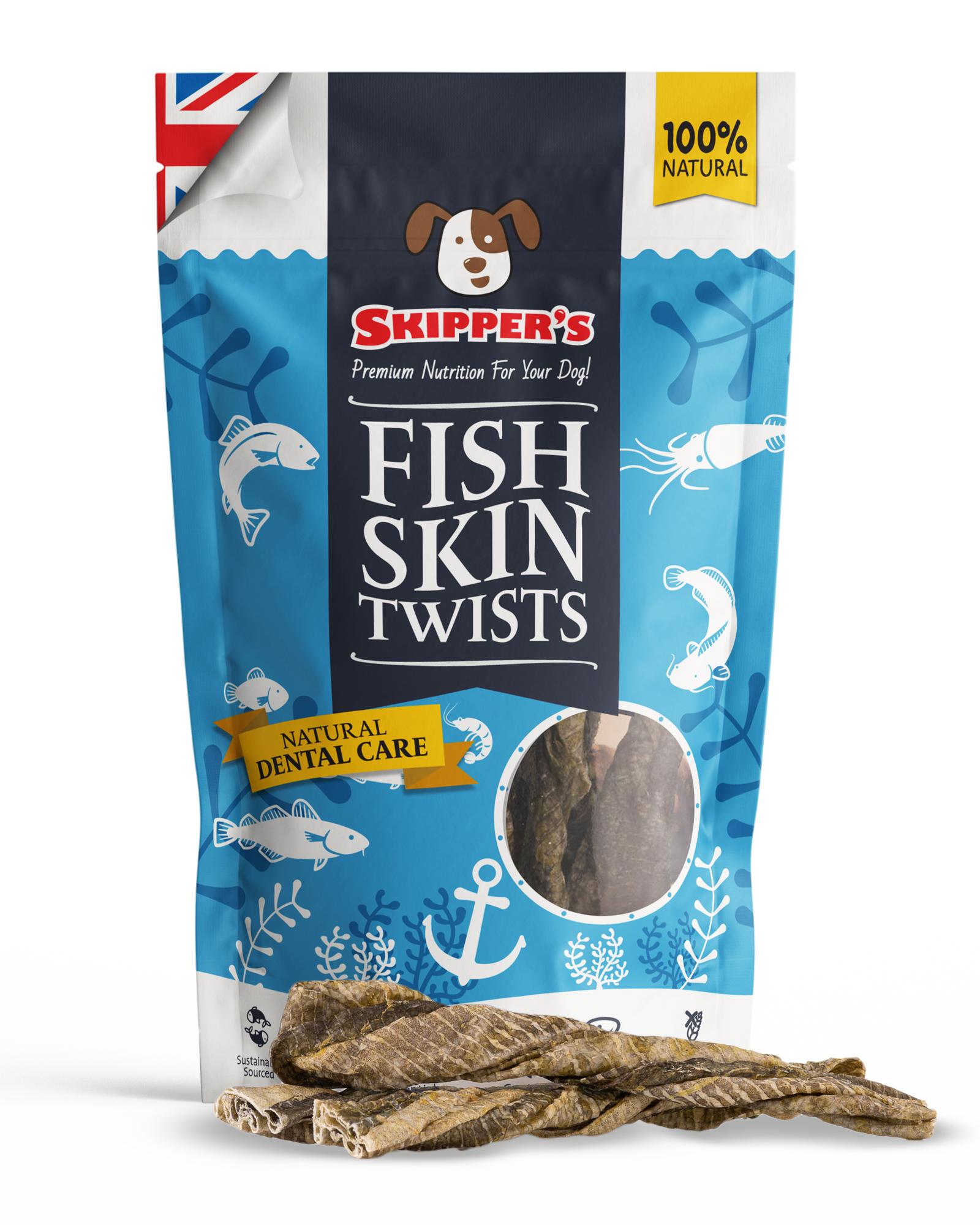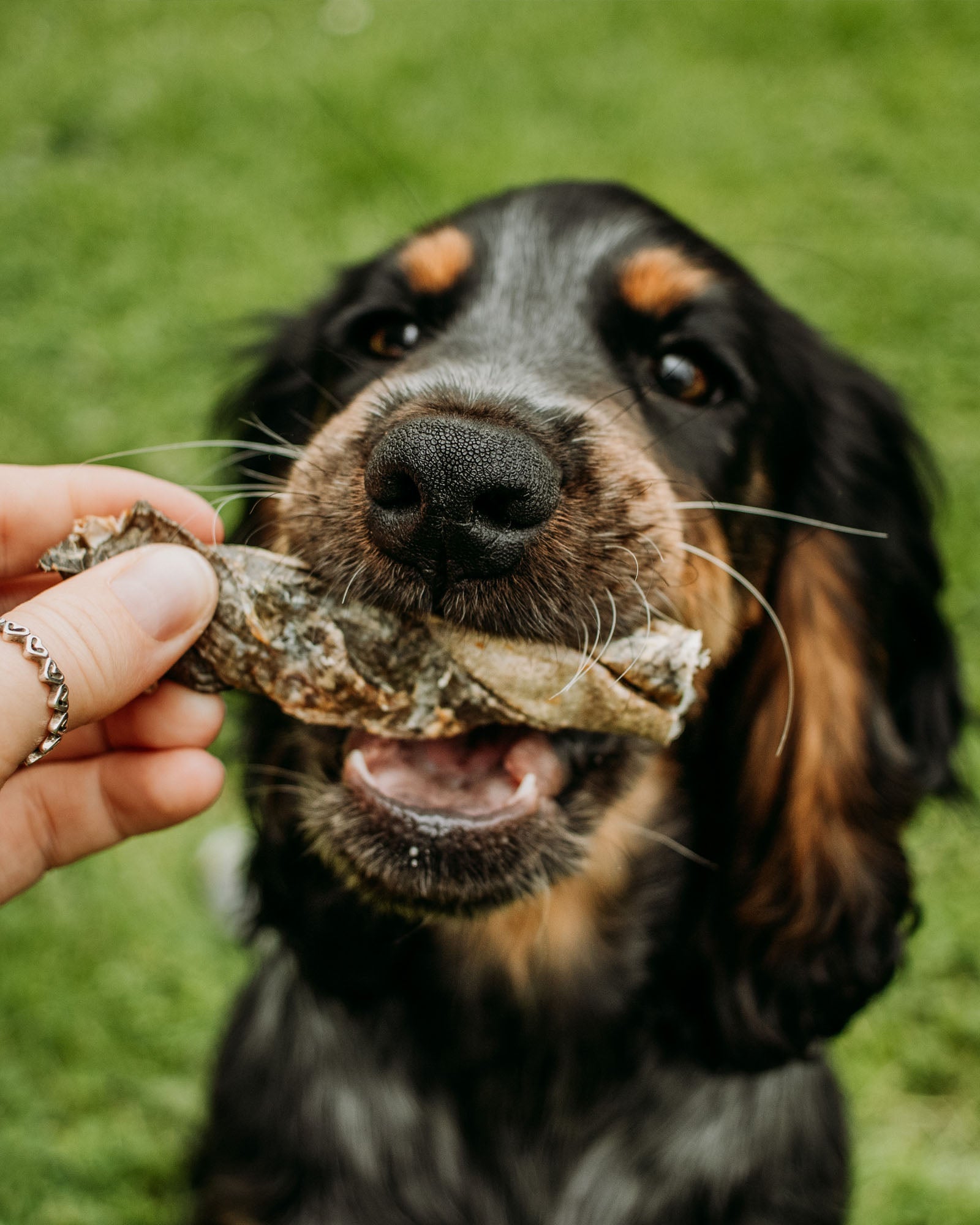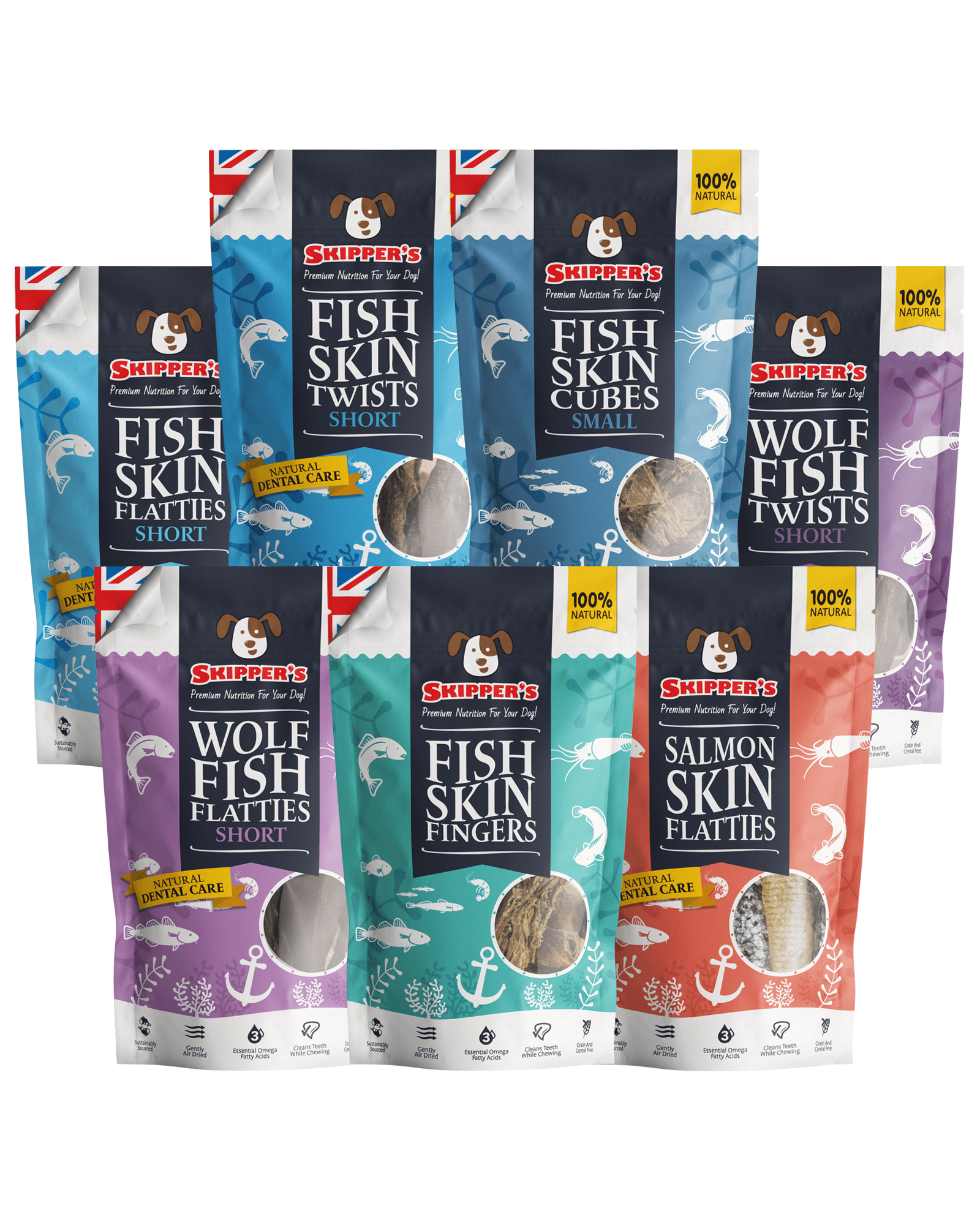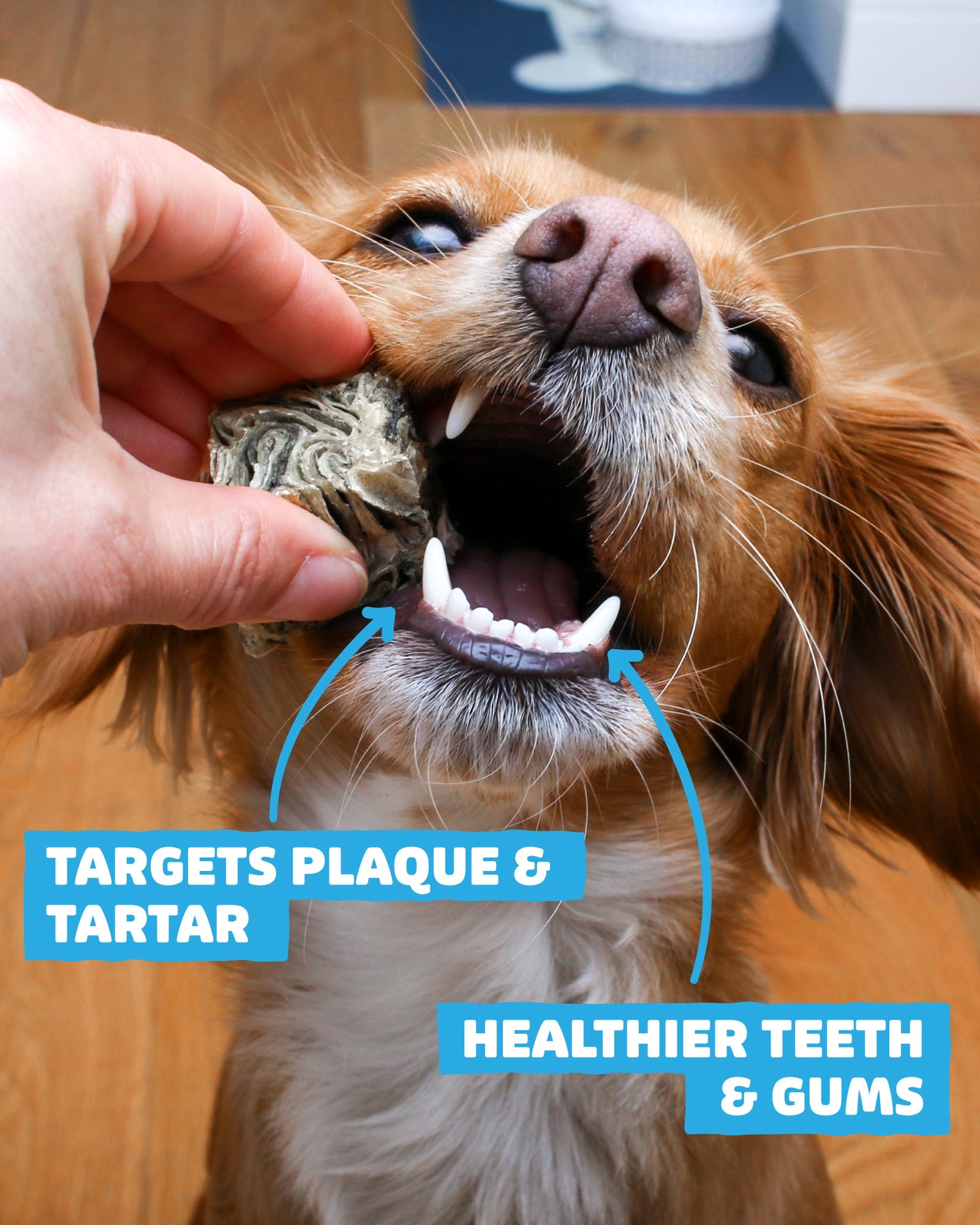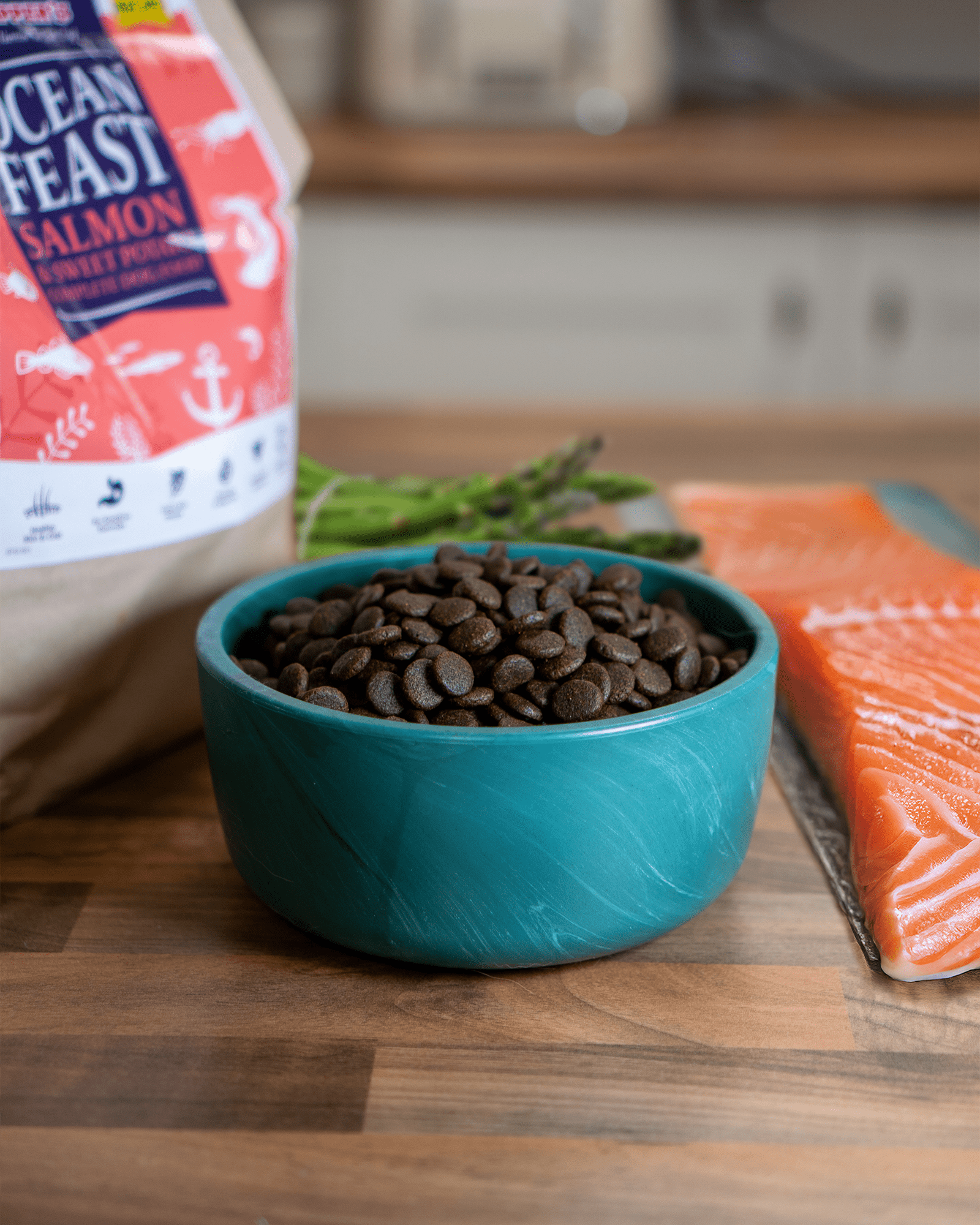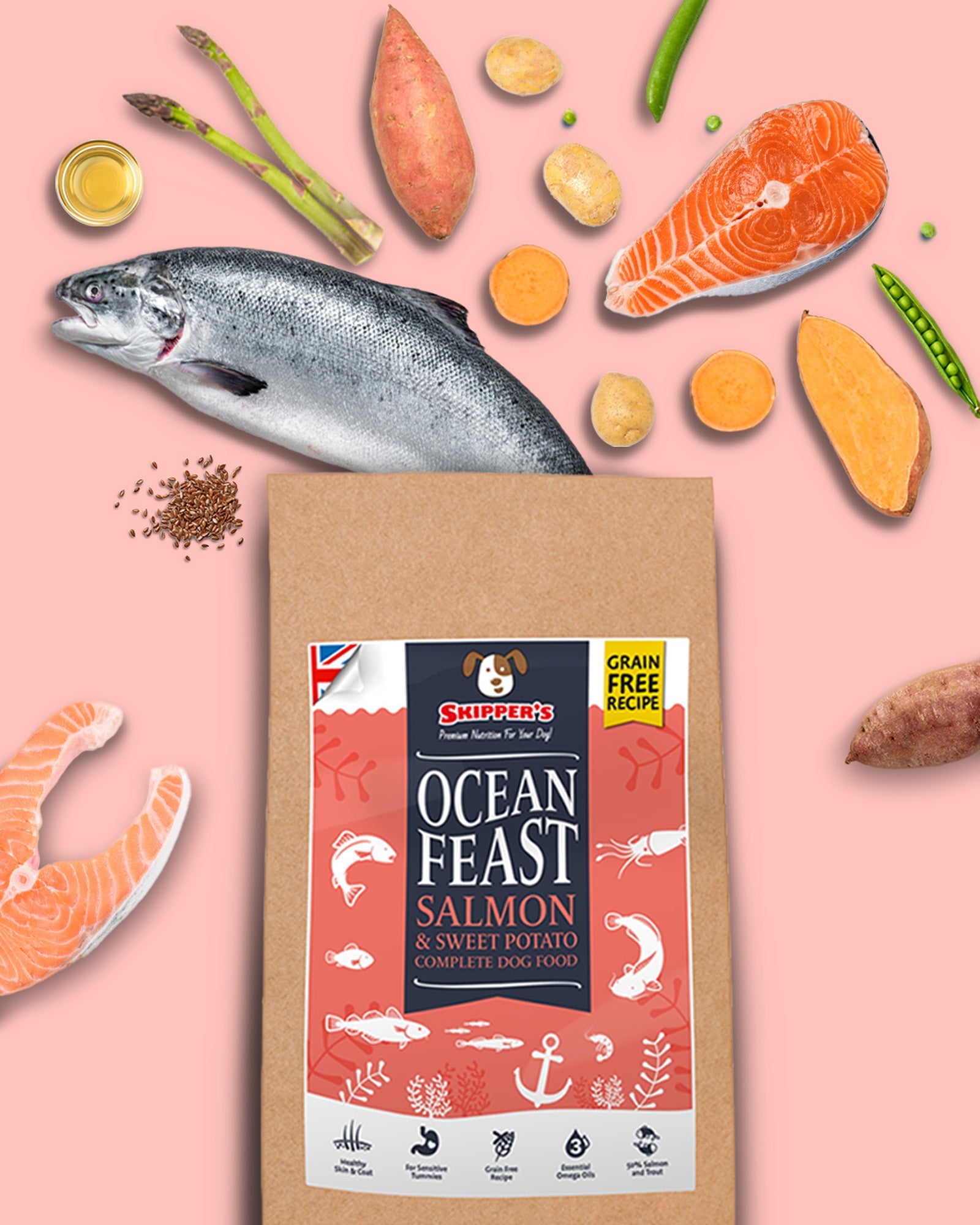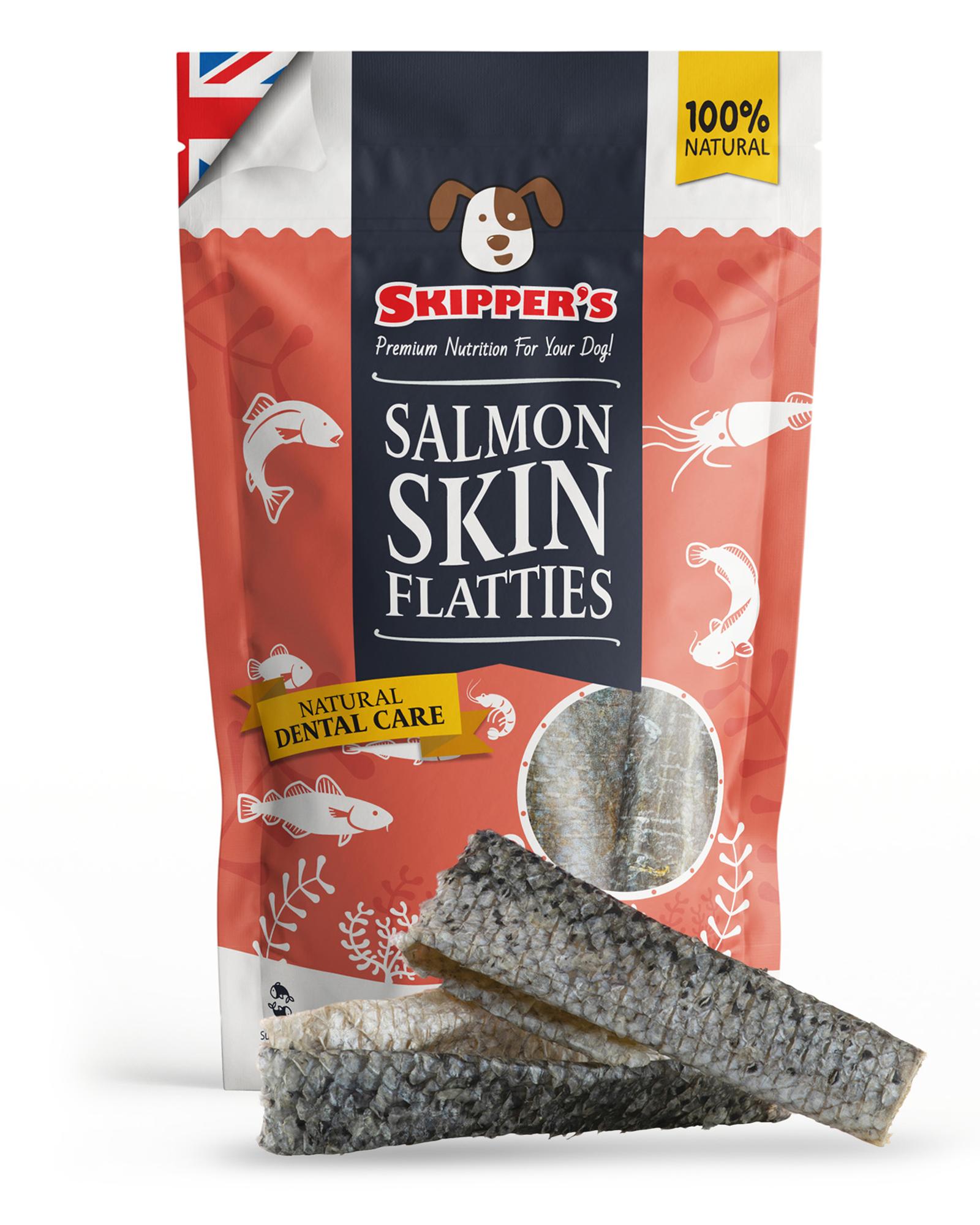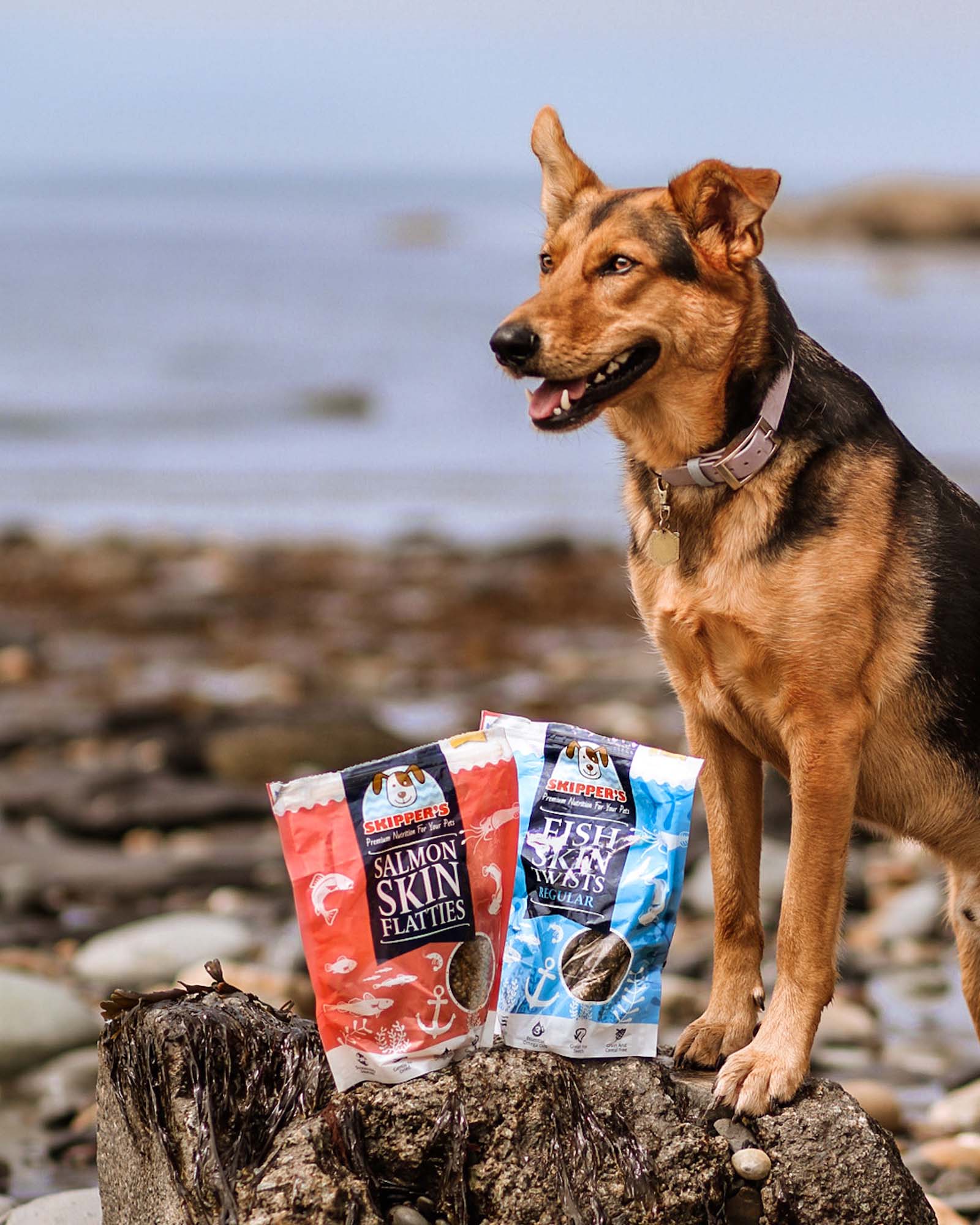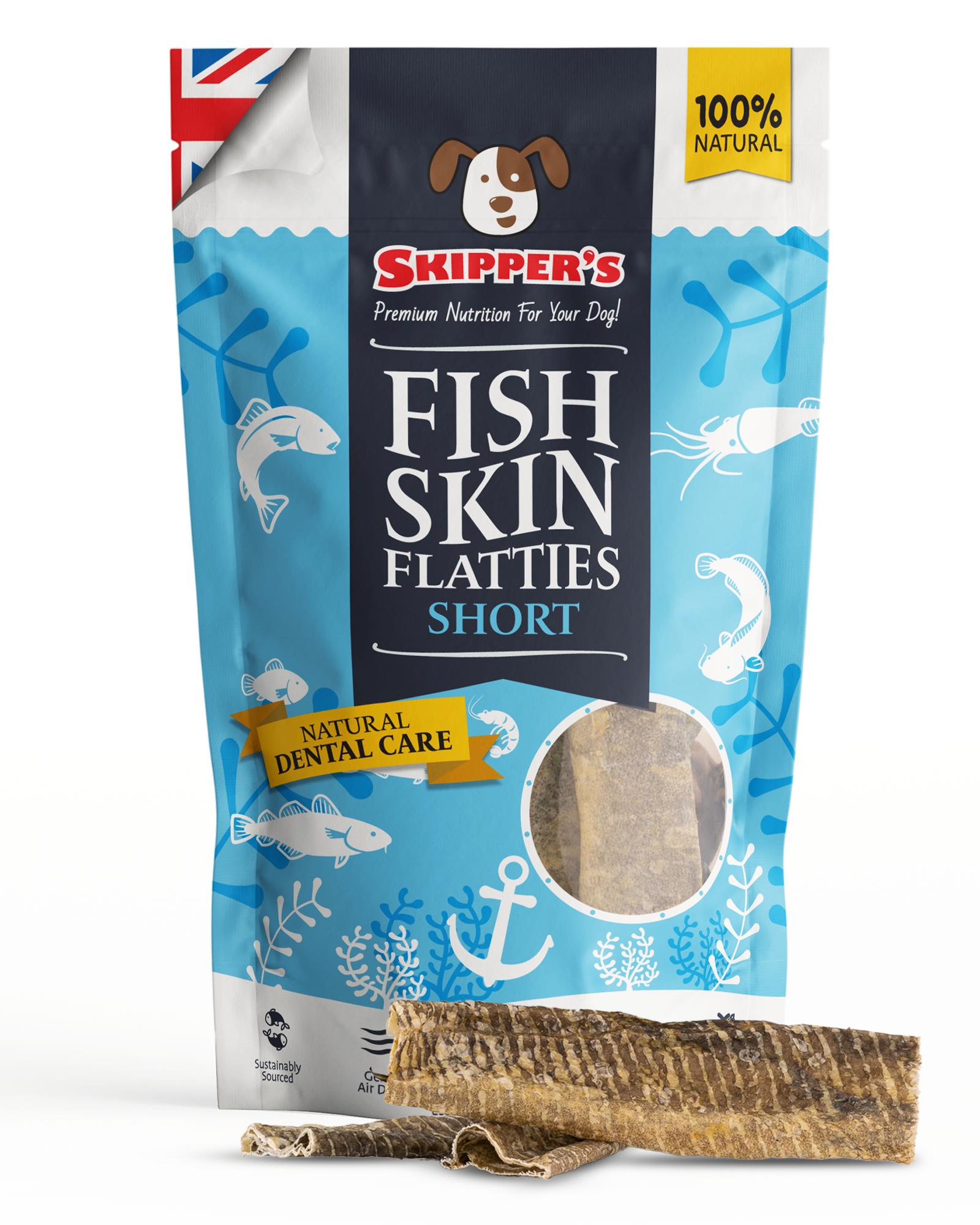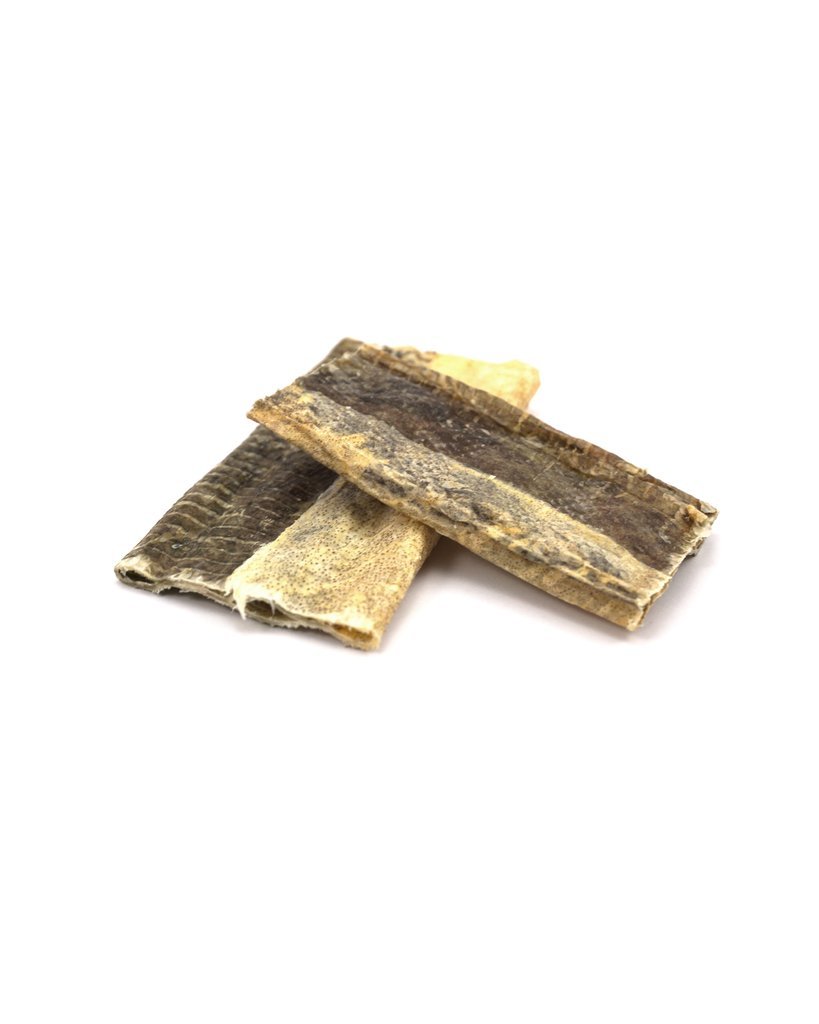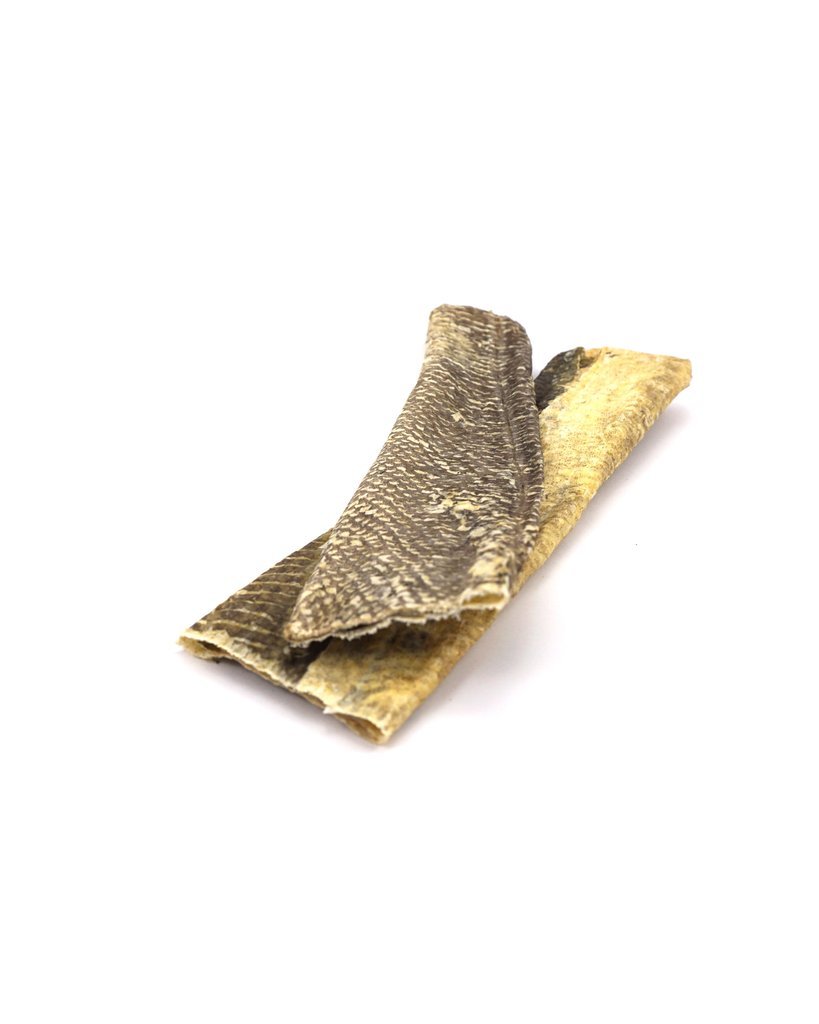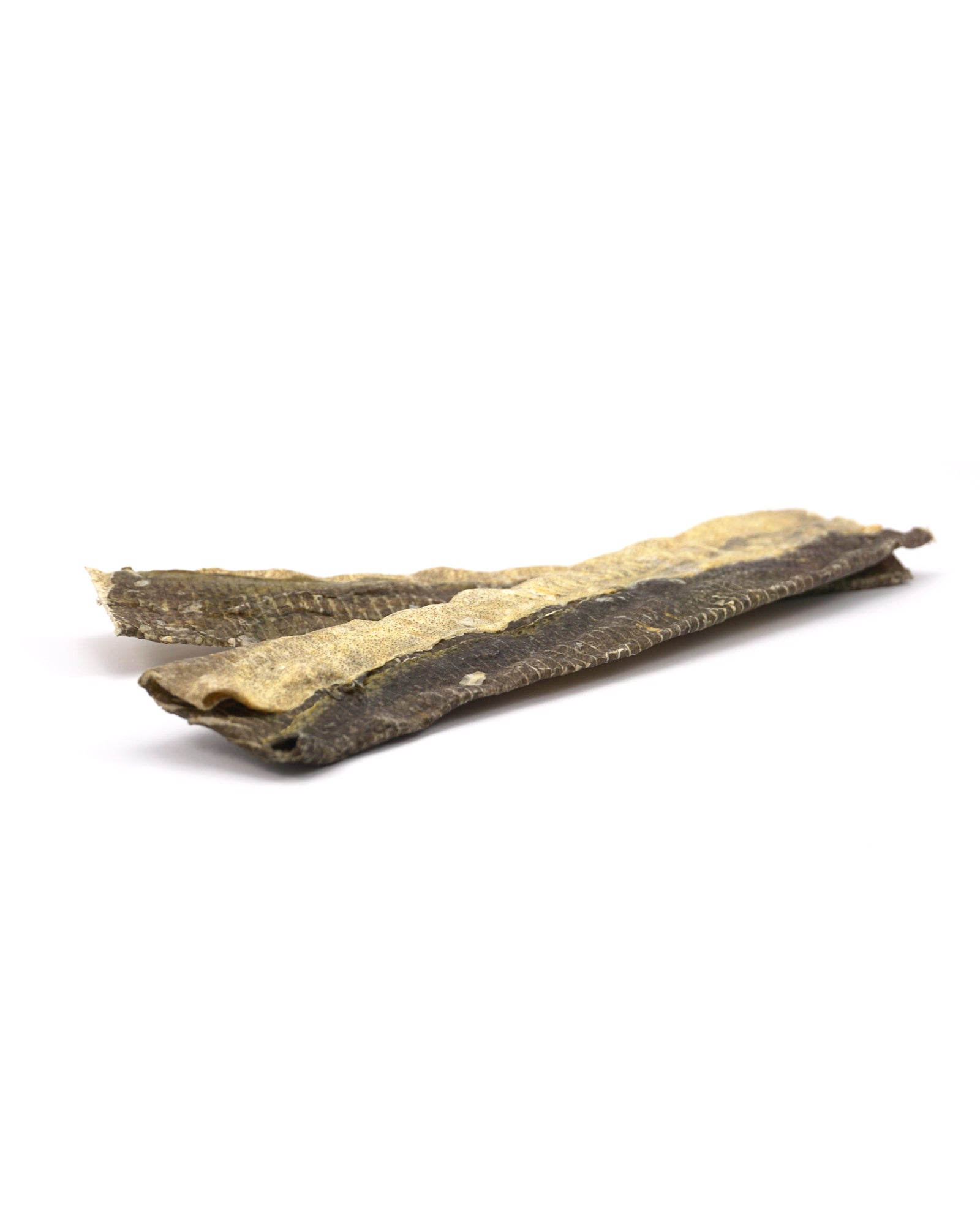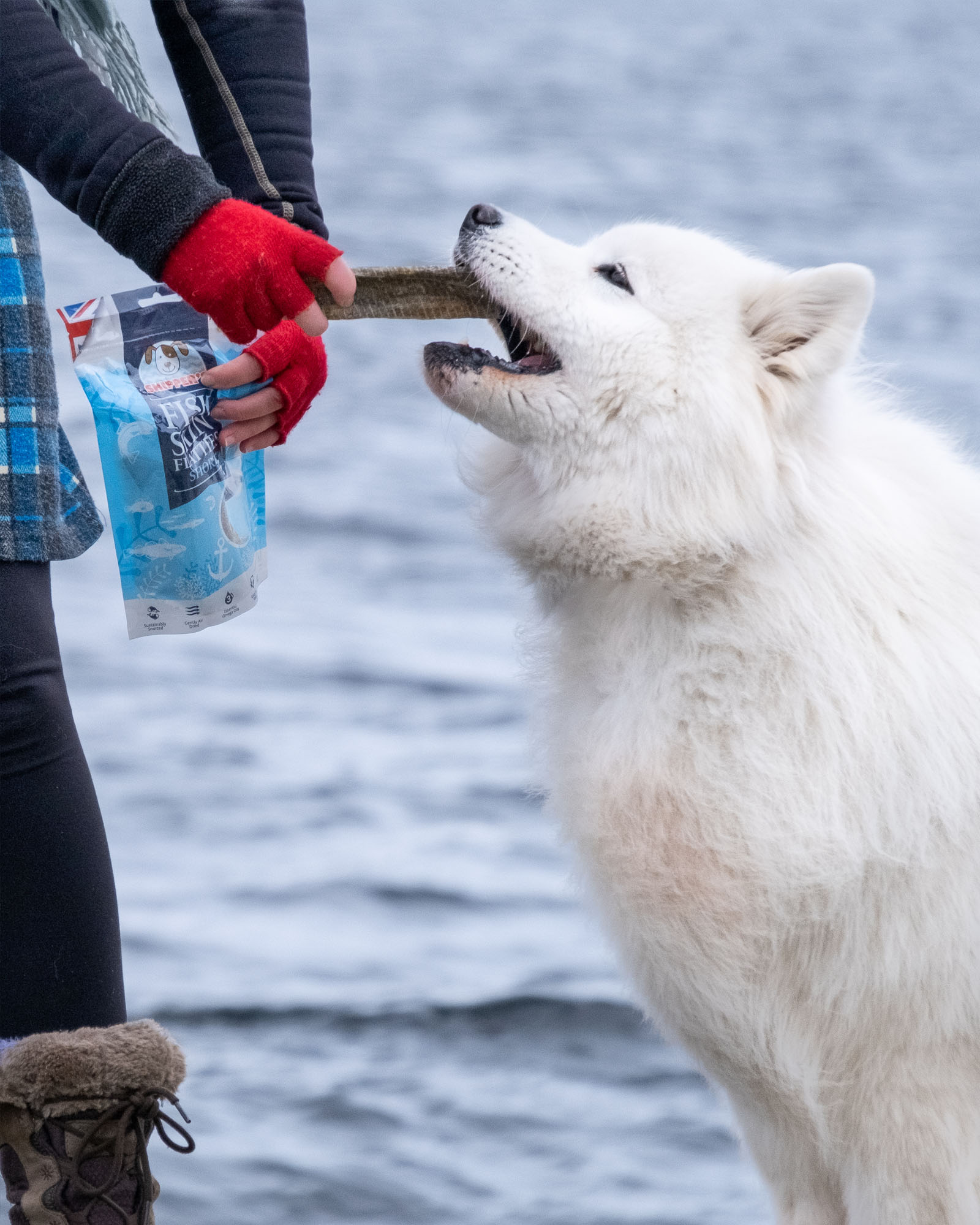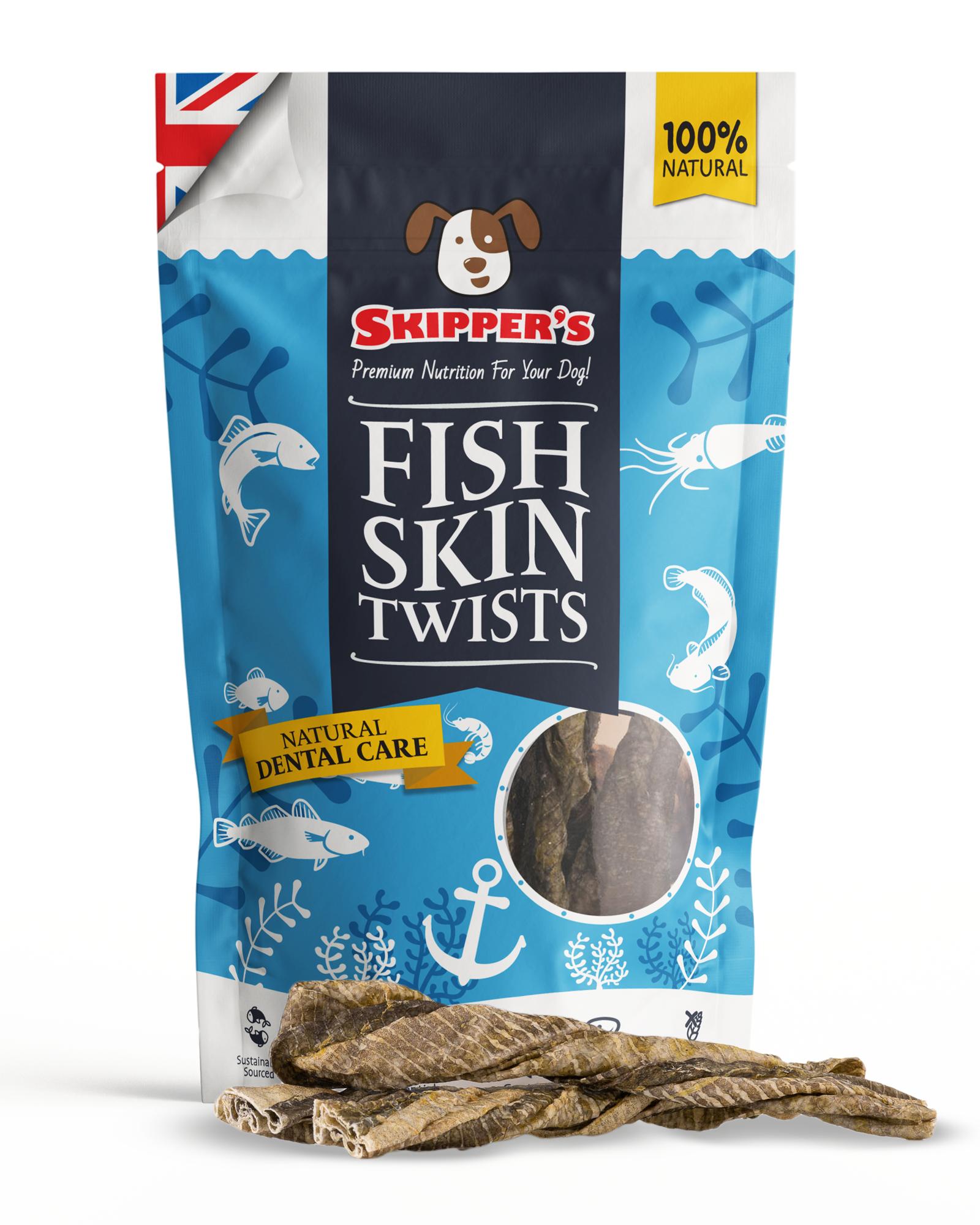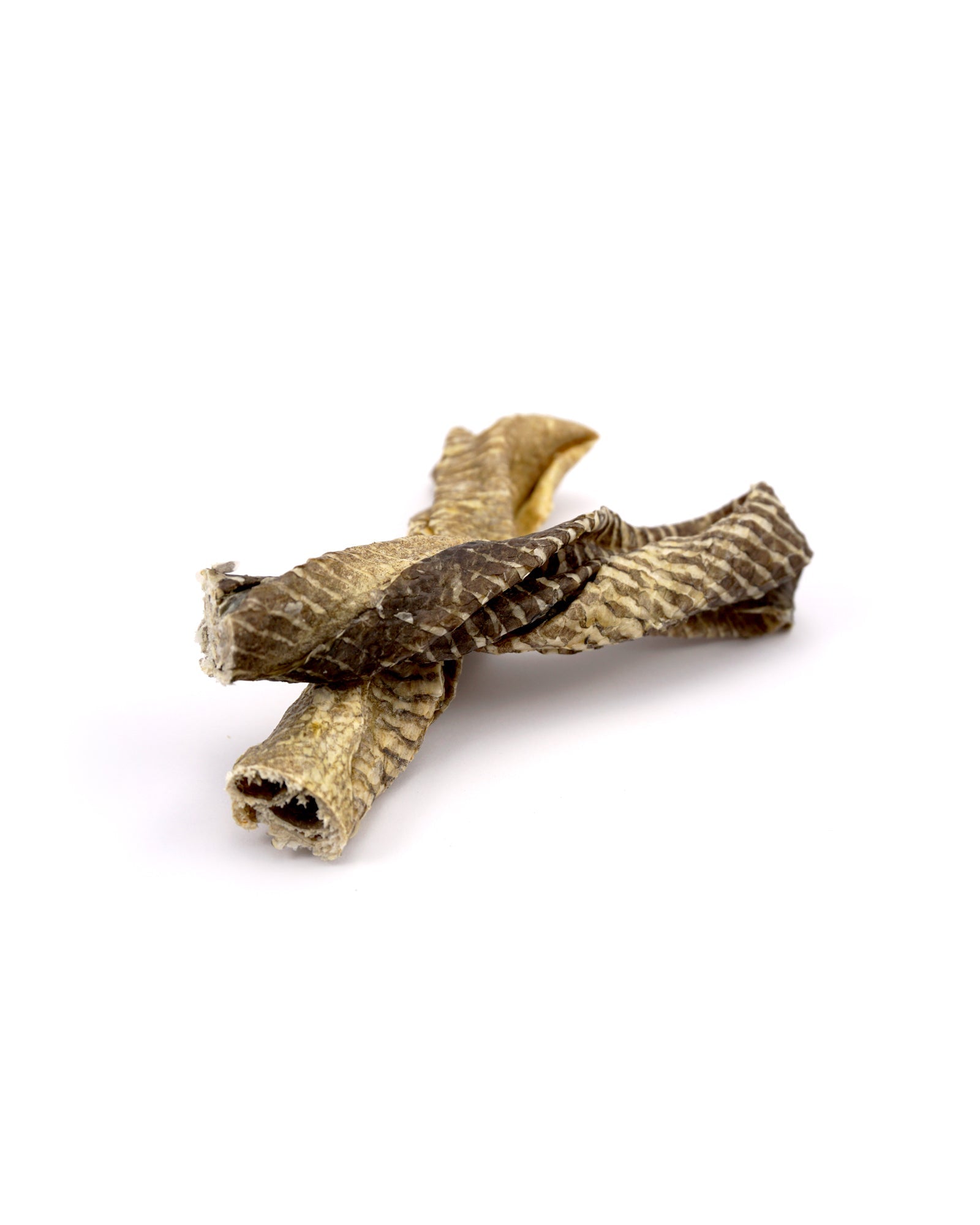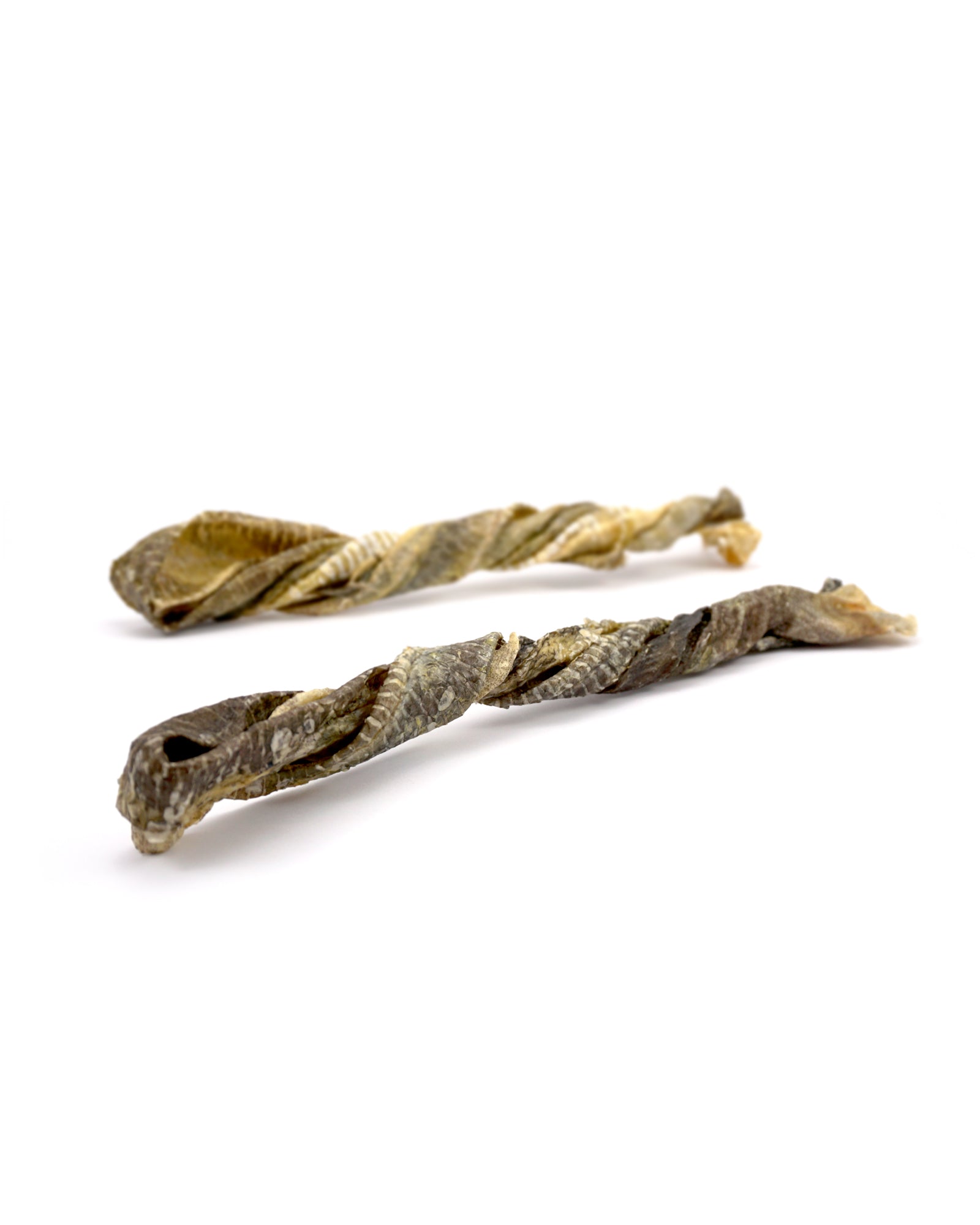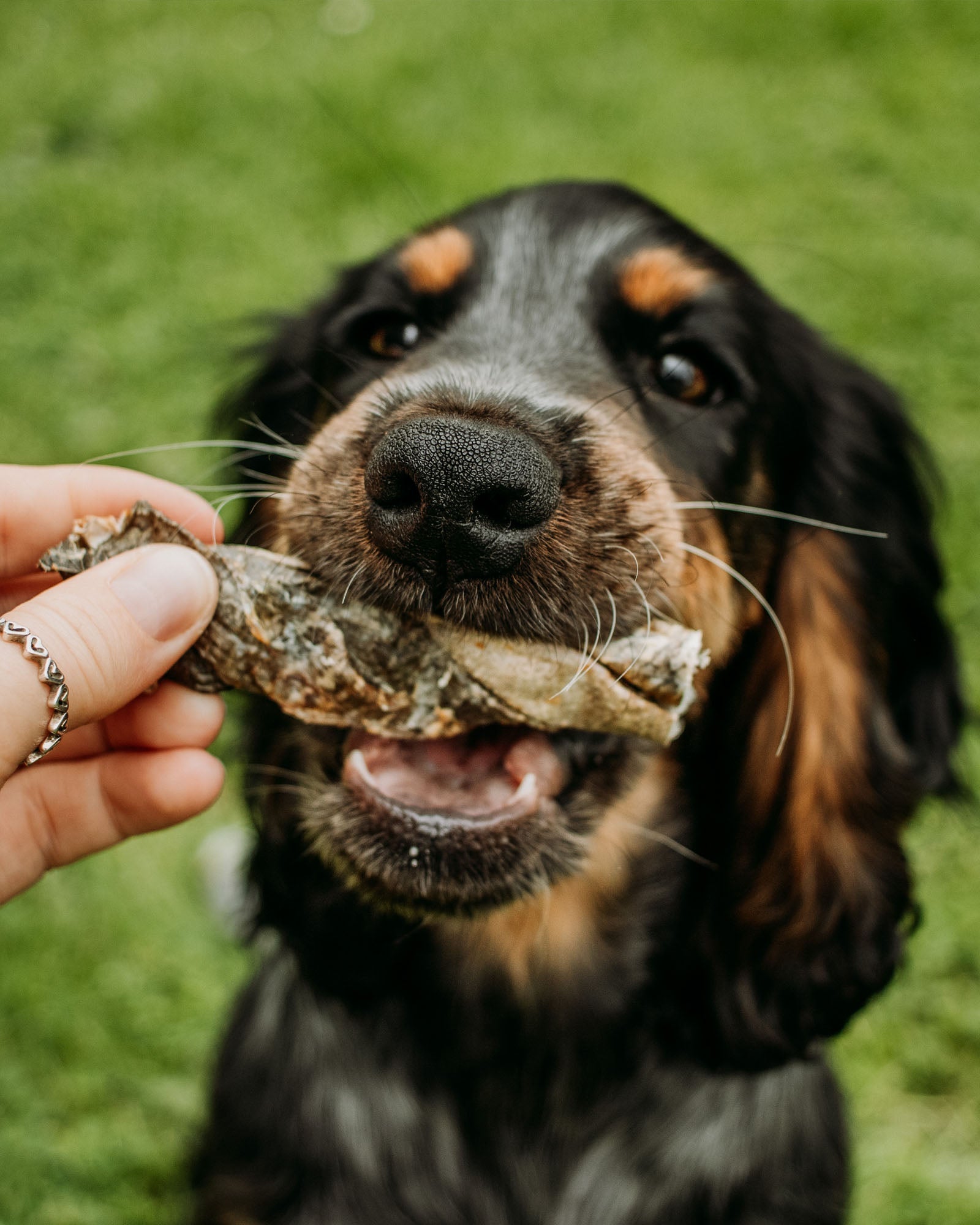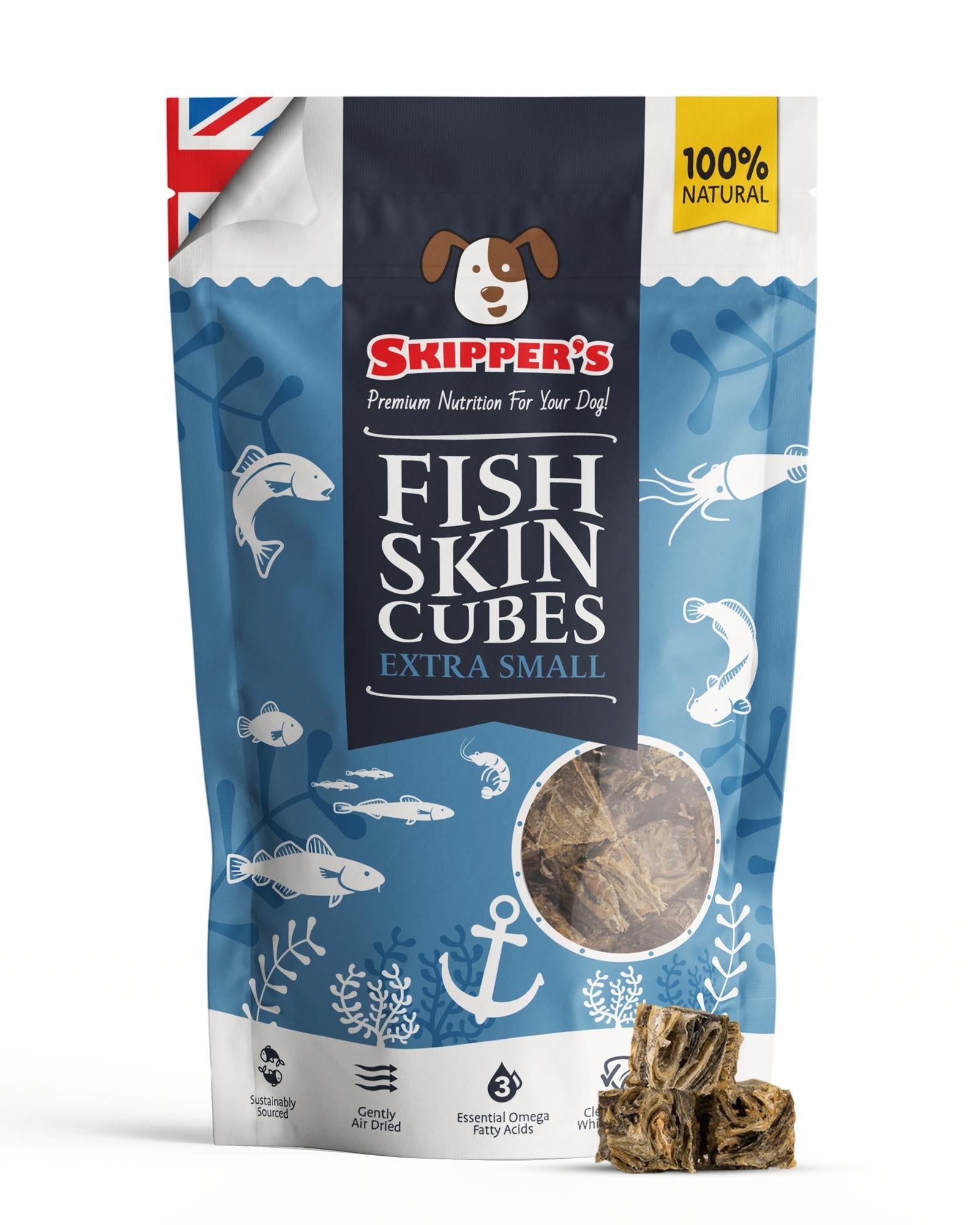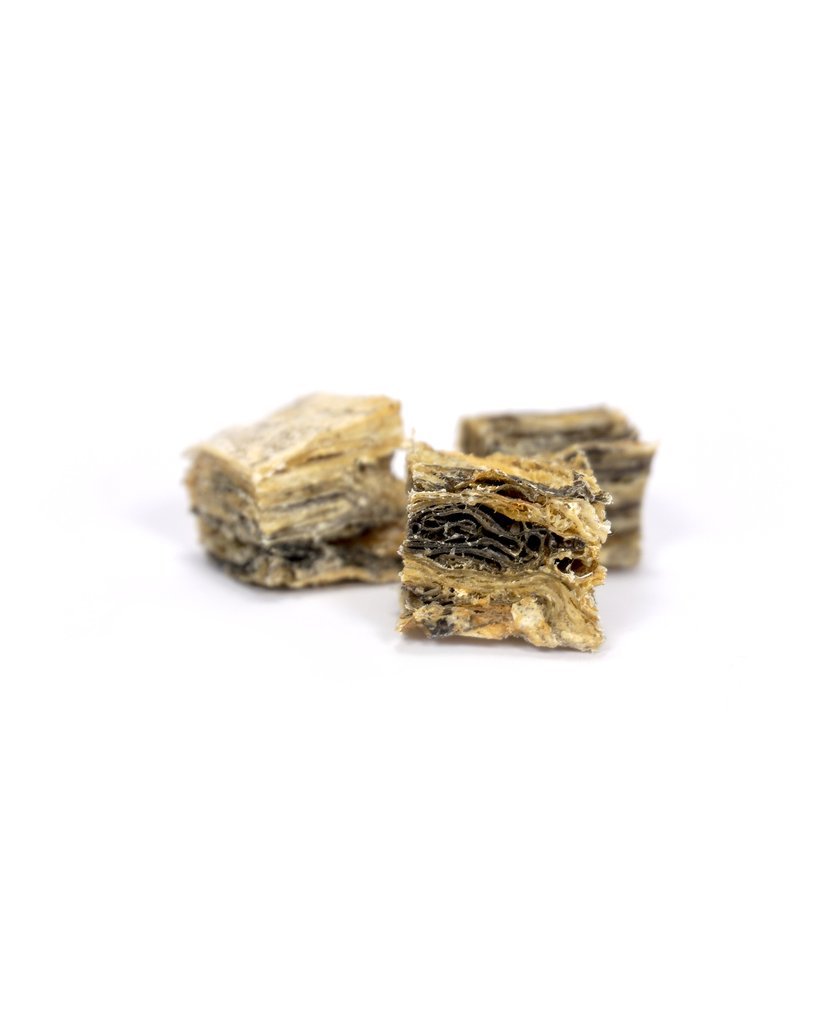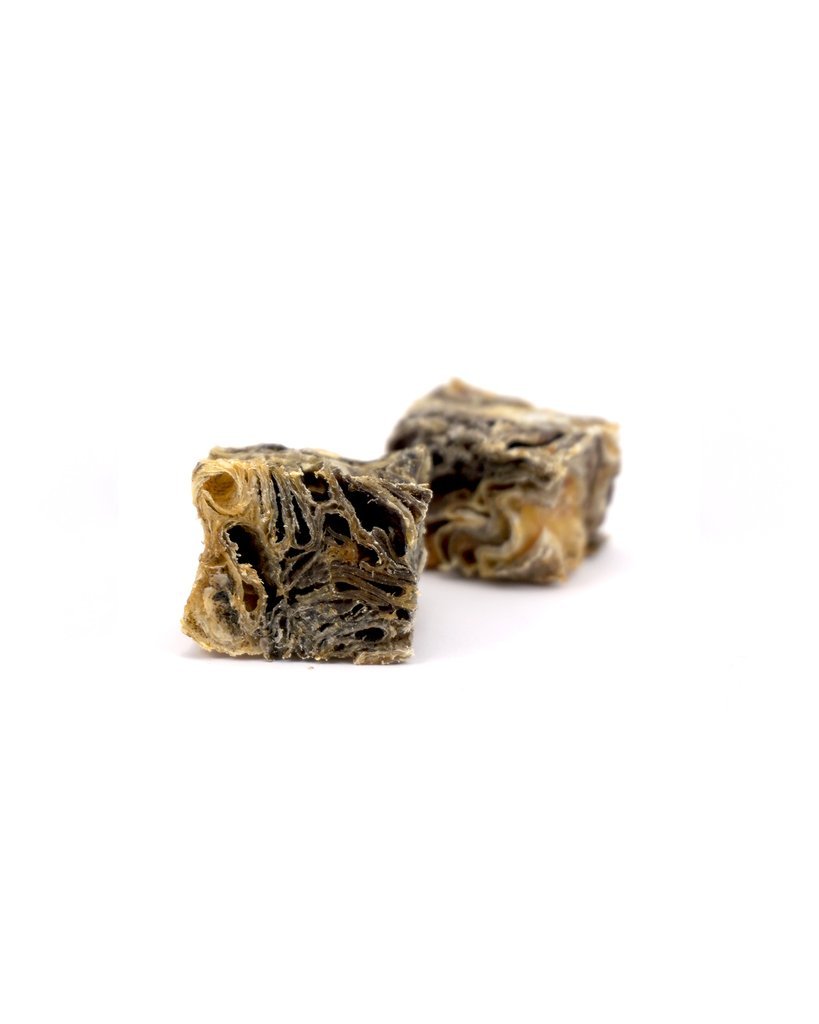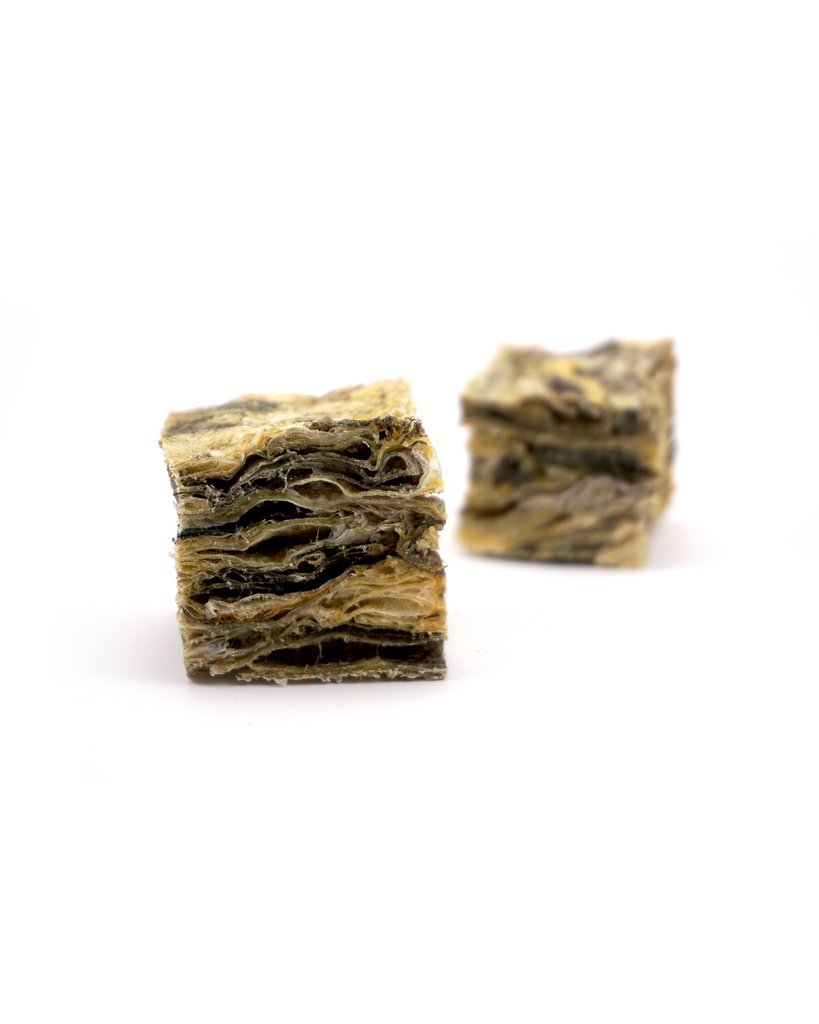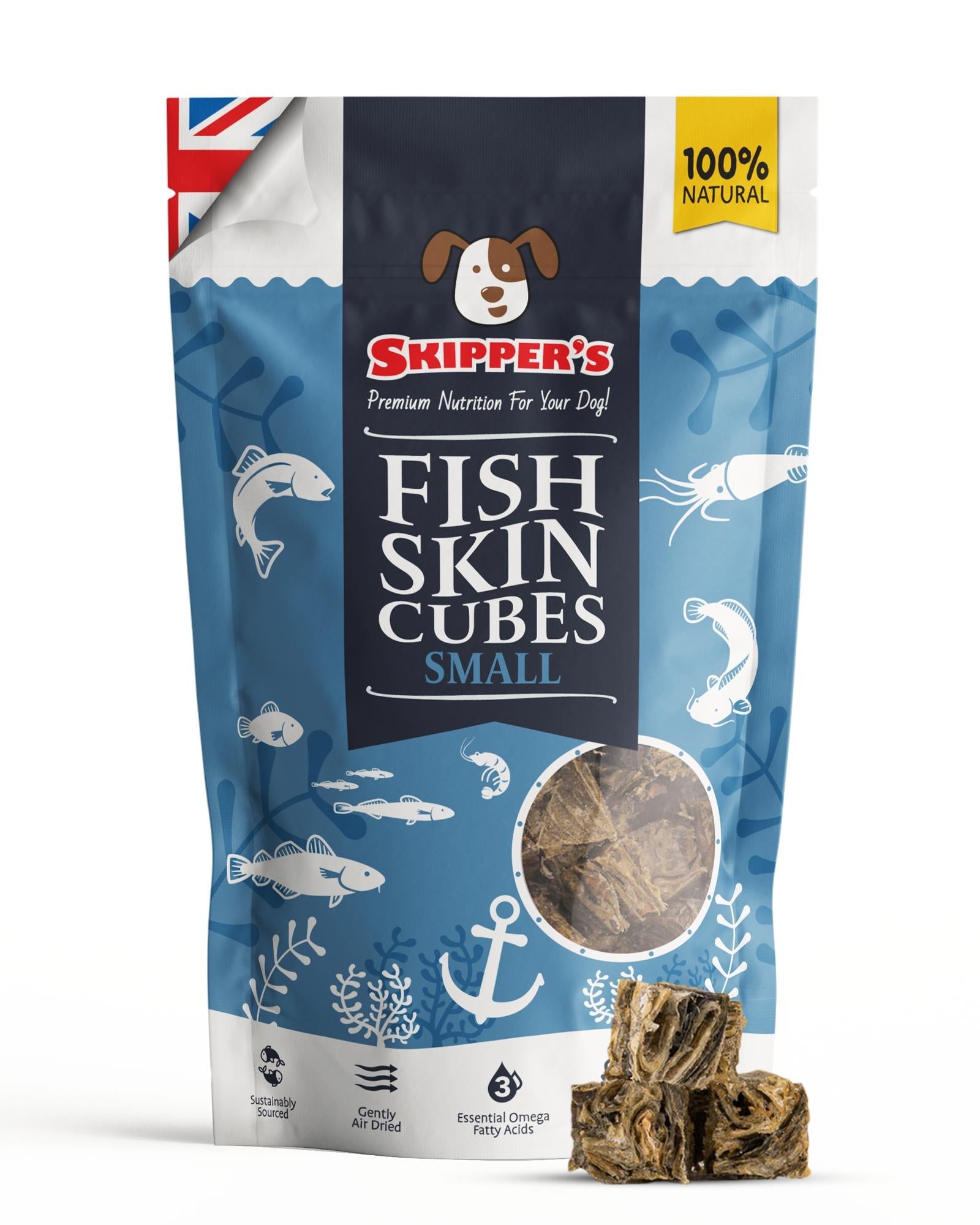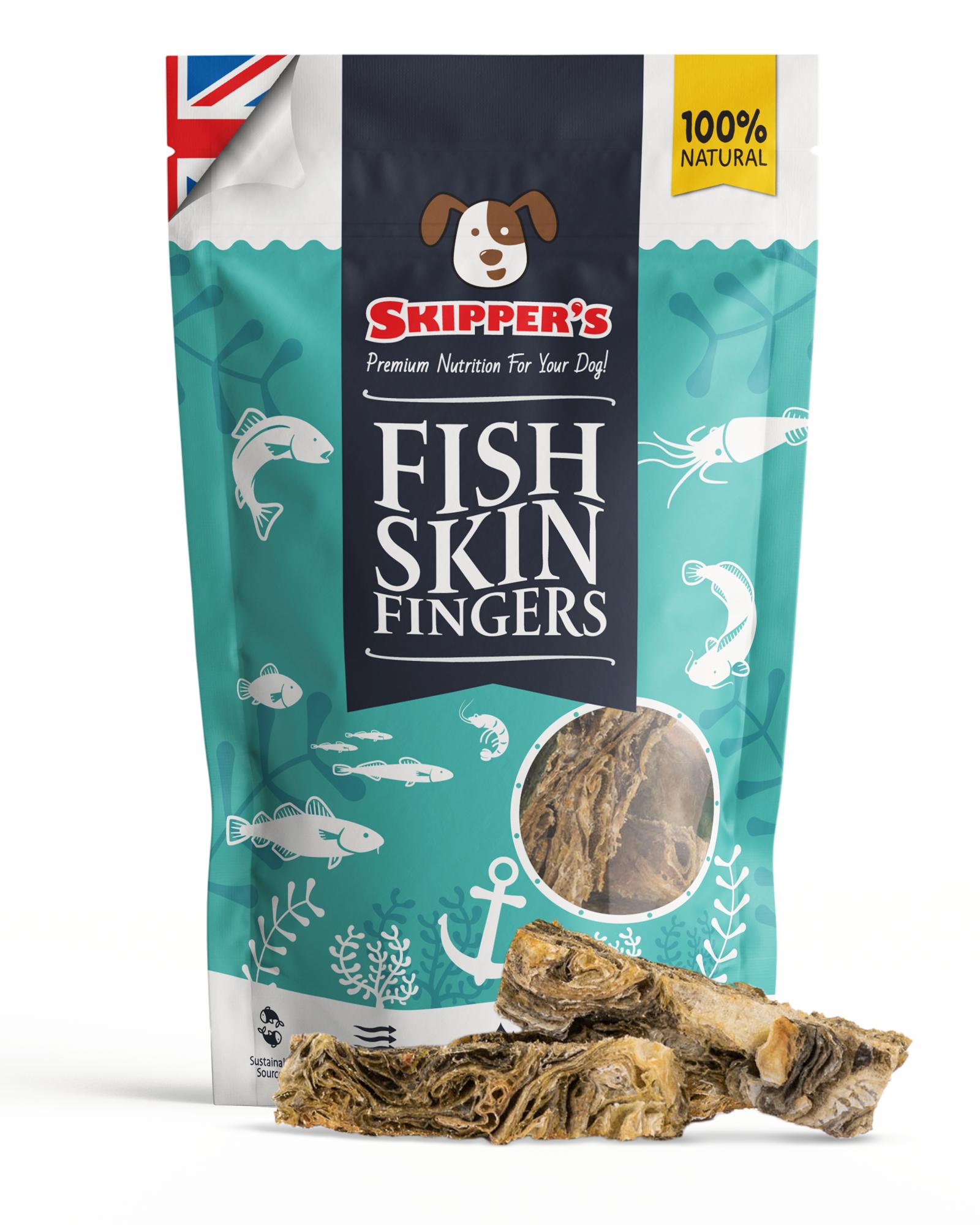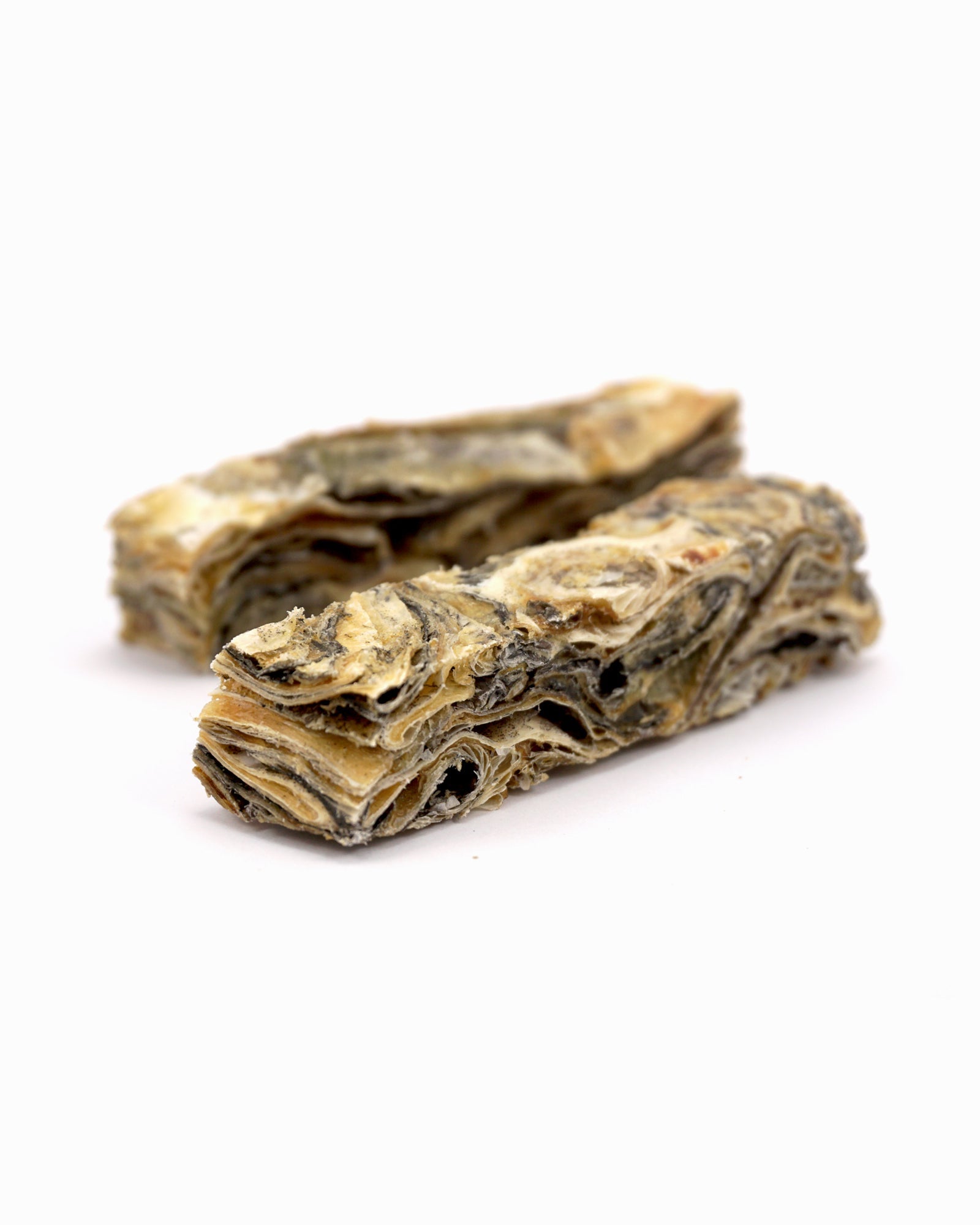Can Dogs Eat Peanut Butter?
Written by Crystal Moore | Last updated 16/09/24

Peanut butter is adored by many of us, including myself! We're certainly not alone in our love of peanut butter because the Market Data Forecast report shows that European Peanut Butter sales are growing around 10% each year, and Britain is the "growth engine in the area".
But we aren't the only ones that enjoy the taste of peanut butter! I'm convinced our four-legged friends might enjoy the taste even more than we do. However, a question then pops up in many dog owners' minds, is something many of us enjoy suitable for our beloved dogs?
You have most likely seen peanut butter used by many dog owners in their homemade dog treats, training, or mentally stimulating toys, but the question still remains, can dogs eat peanut butter?
Can Dogs eat peanuts?
Yes, dogs can eat peanuts, but with some precautions. Peanuts are not toxic to dogs, but they should be given in moderation and in the right form. A few peanuts as an occasional treat are fine, but they shouldn’t be a regular part of their diet. Stick to 1-2 plain peanuts for small dogs and a small handful for larger breeds occasionally.
Can dogs eat peanut butter?
For the most part, you'll be happy to know that dogs can eat peanut butter. In truth, peanut butter is a fantastic, high-value treat that they can enjoy in moderation.
Peanut butter is a great source of healthy fats, proteins, Vitamin B, Vitamin E and Fibre! Altogether, these nutrients can support your dog's skin and coat health, support the immune system and promote gut health. Regardless, feeding them too much peanut butter can lead to your dog becoming overweight due to its high fat content.
Whilst peanut butter is a great treat to add to your dog's diet, it's essential that you know that not all types of peanut butter are suitable for them.
Is it safe for dogs to eat peanut butter?
There are only some types of peanut butter that are safe for dogs to eat therefore, you must read the ingredient labels as peanut butter that contains xylitol should not be fed to your dog.
Xylitol is toxic to dogs, and when it is consumed, it will quickly be absorbed into their bloodstream, which can result in a concentrated release of insulin from the dog's pancreas. The potent release of insulin causes the blood sugar levels to drop rapidly, causing potentially serious consequences. In more severe cases, xylitol poisoning may cause liver failure in dogs.
According to Dogs Trust, symptoms of xylitol poisoning can "appear within 30 minutes but can take up to 12 hours to develop in some cases". Nevertheless, take your dog to the vet as soon as possible if you suspect your dog has eaten anything containing xylitol, such as peanut butter, sugar-free sweets, chewing gum and toothpaste.
How do I give my dog peanut butter?
Dogs can eat peanut butter in many ways. It can be added to homemade dog treats as a delicious snack you bake or freeze for them. You can also give peanut butter in training, as a distraction or mental stimulation.
Distraction
When and if your dog is in a situation where they feel slightly uncomfortable or stressed, such as getting their nails cut, bathing, visiting the vet or riding the train. Peanut butter can be great at distracting your dog as they focus on this delicious treat rather than the situation at hand. Most people spread the peanut butter on a Lickimat, but it could also be on a spoon or used in combination with other ingredients in a Kong. However, please do not give your dog peanut butter on a regular basis.
Mental stimulation
Mental stimulation is just as important as physical exercise for your dog to help keep them healthy and happy. Peanut butter is a great ingredient in interactive toys, and a lot of dog owners get creative with what ingredients they add. Apples, natural yoghurt and bananas are a few examples of common ingredients used on interactive dog toys. There are various types of interactive toys for dogs to enjoy, such as Lickimats, Kongs and puzzle toys. These toys are a great way to mentally stimulate your dog whilst also being a tasty treat.
Homemade dog treats
Baking or freezing homemade treats for your dog is incredibly rewarding, not only for yourself but for your furry friend too. You can easily customise the treats to be as natural, healthy or tail-waggingly delicious as possible. I would even say that peanut butter is one of the most popular ingredients in homemade dog treats, mostly because of how much dogs love it and how readily available it is. If you decide to make some homemade dog treats containing peanut butter, read the ingredients on the container to ensure it doesn't contain xylitol, which is toxic to dogs.
How much peanut butter can my dog eat?

Peanut butter is not a daily treat and is mostly recommended as an occasional treat due to it being high in calories. In general, you should follow the 10% rule when feeding peanut butter or any type of treat to your dog. The 10% rule is simple, all treats, including peanut butter, should make up no more than 10% of your dog's daily calorie intake. Regularly exceeding 10% can lead to an imbalanced diet, obesity and more. Not only that, but obesity comes with its own list of health problems, such as joint problems, diabetes and heart disease. If you find that you exceed 10%, it's best to reduce the amount of complete food to account for the additional calories of the treats. Although treats may appear as something minor, the 2023 PDSA Paw Report states, "28% of veterinary professionals who reported seeing a rise in pet obesity said that it was due to pets being fed too many treats".
For a more accurate approach, it is best to speak with your veterinarian or veterinarian nutritionist for advice that is specifically for your dog.
Can my dog be allergic to peanut butter?
Similarly to humans, dogs can be allergic to peanuts. Although it is rare for a dog to have a peanut allergy, symptoms are generally mild but, in rare cases, severe.
Signs of an allergic reaction to peanut butter
-
Itchy skin, paws and ears
-
Red and inflamed skin
-
Vomiting
-
Diarrhoea
-
Excessive licking
-
Bald spots
-
Coughing
-
Trouble breathing
If you notice any of these signs or any other changes sometime after your dog has eaten peanut butter, it is best to contact your veterinarian as soon as possible.
Why do dogs like peanut butter?
Peanut butter can be an enticing and high-value rewarding treat for dogs due to its taste and texture. The rich and nutty aroma, paired with a dog's strong sense of smell, can make peanut butter very alluring for dogs. Moreover, dogs love the taste of fats and proteins, both of which are found in peanut butter for them to enjoy.
Due to the thick and sticky texture, most of us might have seen some amusing reactions such as funny faces or sounds as our dogs try to lick the peanut butter from a spoon, their face, or other areas like their nose. This can be mentally stimulating and fun for dogs.
Dogs that should not eat peanut butter:
1. Dogs with Peanut Allergies
-
Some dogs can be allergic to peanuts, though it's rare.
-
Symptoms include itching, swelling, hives, vomiting, or difficulty breathing.
-
If your dog reacts badly, stop feeding peanuts immediately and consult a vet.
2. Dogs with Pancreatitis or a History of Digestive Issues
-
Peanut butter is high in fat, which can trigger pancreatitis, a serious condition causing vomiting, diarrhea, and stomach pain.
-
Dogs prone to pancreatitis should avoid fatty foods, including peanut butter.
3. Overweight or Obese Dogs
-
Peanut butter is calorie-dense, which can lead to weight gain if fed in excess.
-
If your dog is overweight, opt for low-fat, high-protein treats instead.
4. Dogs with Diabetes
-
Peanut butter contains natural sugars and fats that can affect blood sugar levels.
-
Diabetic dogs should only have peanut butter in very small amounts, if at all.
5. Dogs at Risk of Xylitol Poisoning
-
Some peanut butter brands contain xylitol, a sugar substitute that is highly toxic to dogs.
-
Always check the ingredients and avoid brands with xylitol.
Safer Alternatives for These Dogs:
If your dog falls into one of these categories, consider low-fat, high-protein treats like:
✔ Plain boiled chicken
✔ Pumpkin puree (unsweetened)
✔ Carrot sticks
✔ Blueberries or apples (seedless)
Frequently Asked Questions
Can dogs eat peanuts?
Overall, dogs can eat peanuts. However, they must be unsalted, dry-roasted or raw peanuts that do not have the shell. Keep to natural peanuts, and only feed peanuts occasionally.
Can dogs eat Nutella?
No! Nutella contains a lot of ingredients that are toxic and harmful to your dog. Ingredients such as chocolate, sugar and potentially xylitol are found in Nutella, which can lead to gastrointestinal issues or other serious health issues.
Can dogs eat Almond Butter?
Similarly to peanut butter, almond butter can also be fed from time to time. Always read the ingredients label first to ensure it doesn't contain xylitol.

